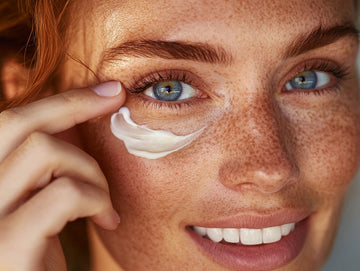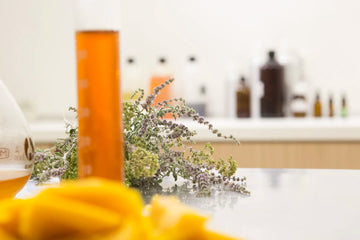Frequently Asked Questions
1. How does nutrition impact skin health?
2. What are some essential vitamins for skin health?
3. Why are antioxidants important for skin health?
4. How does hydration affect skin appearance?
5. What lifestyle factors contribute to healthy skin?
When it comes to skin health, the beauty industry often highlights fancy creams and expensive treatments. However, the truth is that what you put into your body can be just as important, if not more so, than the products you apply. Nutrition plays a critical role in maintaining healthy skin, and understanding this relationship can empower you to make better dietary choices that promote a glowing complexion.
The Skin: An Indicator of Overall Health
Your skin is often referred to as the body's largest organ, and like any other organ, its health reflects your overall well-being. Factors such as diet, hydration, and lifestyle choices can significantly influence the condition of your skin. Poor nutrition can lead to various skin issues, while a balanced diet rich in essential nutrients can help keep your skin vibrant and youthful.
The Importance of Vitamins and Minerals
Vitamins and minerals play various roles in skin health. Here’s a quick breakdown of some key nutrients and their benefits:
- Vitamin A: Crucial for skin cell production and repair, vitamin A helps maintain the skin’s elasticity and smoothness. You can find it in foods like sweet potatoes, carrots, and spinach.
- Vitamin C: Known for its antioxidant properties, vitamin C aids in collagen production, which is essential for skin elasticity. Citrus fruits, berries, and bell peppers are excellent sources.
- Vitamin E: This vitamin helps protect your skin from oxidative stress and promotes healing. Nuts, seeds, and green leafy vegetables are rich sources.
- Zinc: Important for wound healing and skin renewal, zinc helps to control inflammation and can minimize breakouts. It’s commonly found in shellfish, legumes, and seeds.
The Power of Antioxidants
Antioxidants are compounds that help neutralize free radicals in your body. Free radicals are unstable molecules that can cause oxidative damage, leading to premature aging and various skin issues. Including foods high in antioxidants, such as berries, dark chocolate, and green tea, can significantly benefit your skin's overall appearance.
The Role of Fats in Skin Health
Healthy fats are often overlooked when discussing skin nutrition, but they are crucial for maintaining skin integrity and hydration. Fats play a role in building the skin's barrier function, which keeps moisture in and harmful substances out.
Omega-3 Fatty Acids
Omega-3 fatty acids are known for their anti-inflammatory properties. They contribute to skin hydration and can help treat skin conditions like eczema and psoriasis. Sources include fatty fish like salmon, walnuts, and flaxseeds. Incorporating omega-3s into your diet can lead to smoother and more supple skin.
Tallow for Skin - An Age-Old Solution
Tallow, derived from animal fat, has gained attention due to its skin-nourishing properties. Rich in saturated fats and vitamins A, D, E, and K, tallow mimics the natural oils found in human skin. When consumed, it can help promote skin health from the inside out. Some people also use tallow-based creams as a moisturizer, benefiting those with dry or sensitive skin.
The Hydration Connection
Staying hydrated is vital for healthy skin. Water helps maintain elasticity and prevents dryness, making you appear more youthful. Aim to drink at least eight glasses of water a day, or more if you’re physically active or live in a hot climate. Additionally, fruits and vegetables like cucumbers, oranges, and strawberries contain high water content and can help with hydration.
Hydrating Foods for Glowing Skin
Adding hydrating foods to your diet can be a delicious way to boost skin health. Here are some favorites that double as snacks:
- Cucumbers - High in water content and low in calories.
- Watermelon - A refreshing fruit that hydrates your skin.
- Tomatoes - Contains lycopene, which offers sun protection and hydration.
- Celery - Packed with nutrients and water.
The Importance of Gut Health
Research has shown that gut health can significantly affect skin health. A healthy gut microbiome can enhance nutrient absorption and reduce systemic inflammation, which may lead to conditions like acne or rosacea.
Foods for a Happy Gut
Incorporating probiotics and fiber-rich foods into your diet can promote a healthy gut. Here are some foods to consider:
- Yogurt: Contains beneficial probiotics that promote gut health.
- Fermented Foods: Foods such as kimchi, sauerkraut, and kefir can enhance gut microbiota.
- Whole Grains: The fiber in whole grains contributes to digestive health.
- Fruits and Vegetables: High in fiber, these foods encourage healthy digestion.
Processed Foods and Their Effects
While focusing on what to include in your diet, it's also essential to consider what to avoid. Processed foods, high in sugars and unhealthy fats, can lead to inflammation and may exacerbate skin conditions. This includes sugary snacks, fast food, and refined carbohydrates.
Sugar and Skin Health
Excess sugar intake can lead toglycation, a process where sugar attaches to proteins in your body, resulting in harmful compounds that can affect skin elasticity. You might want to swap out sugary treats for healthier alternatives like fruits or dark chocolate to satisfy your sweet tooth while reaping the benefits of antioxidants and vitamins.
Building a Skin-Friendly Meal Plan
The next step to achieving beautiful skin is to create a balanced meal plan that incorporates nourishing foods. Here are some tips on crafting meals designed to boost skin health:
- Prioritize Whole Foods: Focus on a diet rich in whole foods rather than processed options.
- Sample Size Face Creams: Try out nutrition-rich smoothies that can deliver vitamins directly to your body while keeping your skin hydrated!
- Diverse Fruits and Vegetables: Aim for a variety of colors on your plate to ensure a broad spectrum of nutrients.
- Healthy Snacking: Keep healthy snacks like nuts and fruits on hand to avoid reaching for processed options.
Additional Lifestyle Factors
While nutrition is vital, other lifestyle factors also contribute to skin health. Adequate sleep, stress management, and sun protection are equally important.
Sleep and Skin Health
During sleep, your body undergoes repair processes that can greatly affect your skin's appearance. Aim for 7-9 hours of quality sleep each night to help promote a healthy, glowing complexion.
The Role of Stress Management
Chronic stress can lead to hormonal imbalances, resulting in breakouts and skin concerns. Incorporate stress-relieving activities, such as yoga, meditation, or hobbies, into your routine to support healthy skin.
Don’t Forget the Sunscreen
Protecting your skin from UV damage is crucial for maintaining its health. Regularly applying a sunscreen with at least SPF 30 helps prevent premature aging and skin cancer.
Your Journey to Radiant Skin
In conclusion, the pivotal role of nutrition in skin health cannot be overstated. By focusing on a well-rounded diet that incorporates essential vitamins, minerals, and healthy fats, you can support your skin from the inside out. Remember to stay hydrated, manage stress, get enough sleep, and protect your skin from the sun’s harmful rays. With these holistic approaches, you’ll be on your way to achieving the glowing skin you desire. Your purchase of a trial sample size face cream or adopting other skincare practices enhances these dietary benefits, making for a comprehensive approach to skincare.



